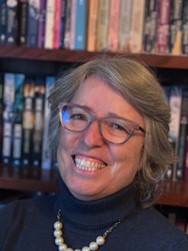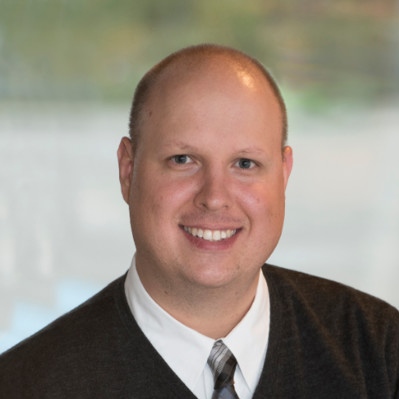An Interview with Janine Mitchell
An Interview with Janine Mitchell
By: Rob Kirsic
December 2024

Janine has always been an advocate for, and actively engaged in, incorporating a culture of accessibility, equity, diversity, inclusion and belonging into the work space, and was a recipient of the Kawartha Lakes Accessibility Award. Always an advocate for people, Janine developed the first orientation and onboarding and staff recognition program for staff working in social services that was used to develop the program for the entire corporation. Janine is a ‘there is no box’ thinker and looks for possibilities to make things happen using an evidence based approach and research while developing and supporting creative and innovative solutions – Janine can often be heard saying find a way for me to say yes.
She is also one of the recipients of the 2024 OMSSA Champion of Human Services Award. Looking at past winners and the accomplishments they made, Janine will say that she is not entirely sure she deserves this recognition! OMSSA sat down with Janine Mitchell for an interview to discuss her work and career and thoughts on human services in Ontario.
This interview has been edited and condensed.
OMSSA: Human services delivery between more than one level of government brings challenges and opportunities, especially as governments and priorities change over time. In your experience, what should human services staff know and think about when it comes to the relationship between the province and municipalities as it relates to the delivery of human services?

We also have to think about the scope. What is the scope of our responsibilities and the scope of the province’s responsibilities? There are things within our scope and the ministry does not have the authority to provide that direction to us and I don’t believe we should be asking them for it. We need to be clear and respectful when we're communicating with them, and make sure we share the information we think the province needs to know. We are the experts in what we do and we have a responsibility to share that information with the various governments we work with. If the province is asking us for specific information or data - sometimes I'm thinking, That's not the information you want to know, this is the information you want to know, then I'll make sure we tell them. Sometimes they don’t know what they need to know until we help them out a little.
We need to be engaged. Oftentimes you'll be on calls and it's so quiet. And I'm just sitting there thinking about making a comment, and then I just can't help myself. I have to say something, make a comment, ask a question or provide information. I really think it's important that we are engaged and taking advantage of the opportunities we do have, to share information, informing the province on what they need to know. We need to be involved, share our knowledge, and share our expertise.
I also think we are really trained and very skilled in the municipal world about relationships and managing relationships and working with people. We can use all these skills we have developed to better work with the people we serve, with our provincial partners, with different levels of local governments and with each other across the province.
If you're new in the human services field, in the management field, listen to others. There are many opportunities to do so through OMSSA conferences, education and training events and the various networks. We have a lot of really strong people that we can reach out to and connect with. Go ahead and ask the questions because there are always others who will also want to know the answer.
Ultimately, with the province and the municipality's relationship, for me, doing the right thing is never the wrong thing. Sometimes that might mean saying something courageously, making that comment or providing that information or make a direct request. And it might not be the most popular comment, but that's what we're there for. We are there representing all of our community, and it goes beyond the people we serve. We have the best opportunity to be a voice for the people we serve and for our community. So, let's be that voice. Be brave.
OMSSA: Earlier in your career, you were an Early Childhood Educator (ECE). I'm wondering if you could talk a little bit about how that experience shaped and influenced you?
JM: When you're working in child care, in any role, you end up having to be not just a jack of all trades, you have to be a master of all trades. As an Administrator you are responsible for every department – finance, human resources, marketing, day-to-day operations, and the list goes on.
It's interesting when I was being interviewed for my current position of manager, the interviewees asked a question about how did your background and experience teach you or prepare you for process improvement? My response was quite simple - when you have 10 toddlers, and you're getting them ready to go outside in the winter, there is nobody who knows better about process improvement and that same approach and skill set can be applied to other situations, they are universal.

When you're an RECE, there is so much planning and research and preparation. Once you complete that, you prepare the environment and if you have done it well, most people will be happy. If you haven’t, there is only one place to look for that reason and you will need to adjust and may have to start all over again. When I am planning today, there is very little that I do that I don’t have a reason or purpose for it. Even the smallest of actions is built on planning and research and is knowledge and is evidence based.
The other thing you really learn from three-year-olds is the question of Why? If you don’t respond, they will just keep asking until they are satisfied with the response. In our world, it's really the same – whether it’s with the people we serve or with our staff. When we get asked why, I'm going to answer as best I can with all the information I can provide and if I can't tell you the information, I'll let you know that as well.
OMSSA: Can you talk about the importance of empowering community engagement and building capacity within the community? And if there are any lessons learned from these experiences?

Our community knows their business and they have a lot to bring to the table - years of experience and expertise of their business. It’s good to know we're not in this alone. We cannot do the work we do without all of the community involved and engaged, and that community can include the people we service, service providers, businesses, council.
Sometimes what I find can happen is that we think we need to wait as a municipal government until we have it perfect, and then we can have that meeting, share the email, design and develop the application. We do not have to be perfect. I think there's that saying, don't let perfection get in the way of progress because we depend on each other to move forward and we can equally celebrate our successes and opportunities for improvement and learning together.
Attend community events. It takes time, but we need to be seen in the community. And, I mean different community events because you never know when you're going to run into people. I volunteer in the community - where I also can connect with people, businesses and our local councillors. I'm in the community and I think that's important. That's not available or possible in all communities; however, it's really important in our smaller communities to be seen and engaged with their events and activities. The service providers need to see us out in their community – to know we see them and we know them.
I think in terms of community engagement, we meet often with our service providers. Even though we might not know all the answers, like with the Canada-Wide Early Learning and Child Care program (CWELCC) and the roll out of the funding formula, we still met with operators as a group, and we explained the new formula as best we could. We said we didn't have all the answers but, as soon as we did, we would share them out. We encouraged them to ask any questions they might have and to reach out as needed. We also met individually with all of our providers because the role out of this is huge and scary and they are all wondering if they will all survive this implementation.
OMSSA: Based on your experience, what are some developments or trends Members should look out for as they transition to Centralized Intake and managing Social Assistance within the Employment Services Transformation (EST) framework?
JM: There's a lot of different things that we're watching out for. However, just taking it up to that 30,000 foot level and, you think, what's the overall provincial goal of Centralized Intake?

The messaging we are sharing is How do we make it work as best we can? How do we make this work for the people we serve? and we need to think about how do we support our staff through this implementation – creating an environment of trust and shifting focus to our updated responsibilities. Our focus needs to be how we can make this successful and what we need to do to make that happen because our staff and the people we serve need that from us.
We're going to have people waiting longer to have their application processed and have that first payment out the door for them. The first payments are going to be physical cheques, unless they have direct bank deposit (DBD). Right now we are 95% electronic for our payments. The majority of the people we serve are on DBD or Reloadable Payment Cards (RPCs). Cashing a cheque in our communities is not easy to do – we don’t have financial institutions in all our communities and we are likely to see an increase again in the use of fee for service, cheque cashing businesses.
We expect an increase in traffic in our office or phone calls about how to navigate the system of applying online. While the application may be completed by IBAU, we are still maintaining our application stream so that we can have people available to sit side-by-side with the person completing that application. We don’t want to see people in need waiting and frustrated with the application process.
Again what also needs to be our focus will be supporting and directing our staff to stay within our scope of new responsibilities and what we have been directed to do or not do. That can be very difficult because our staff are really good at what they do, and they're really good at advocating and confirming and verifying information and making sure that people are receiving all that they are eligible to receive and now we are saying, don’t look beyond what we are required to do for an application.
I'm interested to see what's going to happen about whose being made eligible, and who is being approved to be eligible for assistance, and who is applying for assistance. We've noticed that more and more seniors are actually coming to us for the first time to apply for assistance. That's also from people who come here to retire, so we're seeing some differences on who's applying for assistance, and who is applying for emergency assistance. We're predicting we will see more emergency assistance applications in the next few years.
The needs of clients are just going to continue to exasperate, and the services and funding aren't keeping up to meet the needs. How are we going to be supporting both the people we serve and our staff in meeting the needs and providing the service without sufficient funding to support them? I think we are going to continue to see the length of time on assistance lengthen and we are going to see an increase in applications for the Ontario Disability Support Program.
The other area we are watching is to see the impact on overpayments established through centralized intake and shifting the responsibility for collection on certain overpayments as of October 1, 2024, to the province. We are watching and tracking this information to see the potential impact it has on the volume of overpayments and the scale of impact for the overpayments.
OMSSA: Is there anything else that you'd like to say that I haven't asked about?
JM: Don't be afraid to speak up, speak out, ask questions, be involved, and be engaged. Take advantage of training opportunities and conferences to attend and network with others, learn from others, and ask those questions that you need to ask.
I know we don't all have time, but we need to make time to have those connections and work together and reach out and participate. I think it really does make a difference for us in the long run.
OMSSA: Thank you, Janine.
About the Author

Rob Kirsic is the Communications and Member Engagement Manager with OMSSA. Rob started with OMSSA in 2021 and has over 15 years of communications and public relations experience in the private, public, and not-for-profit sectors.
Blog categories: Interview, Leadership, Human Services, Human Services Delivery, Child Care, Community, Engagement, Social Assistance, City of Kawartha Lakes